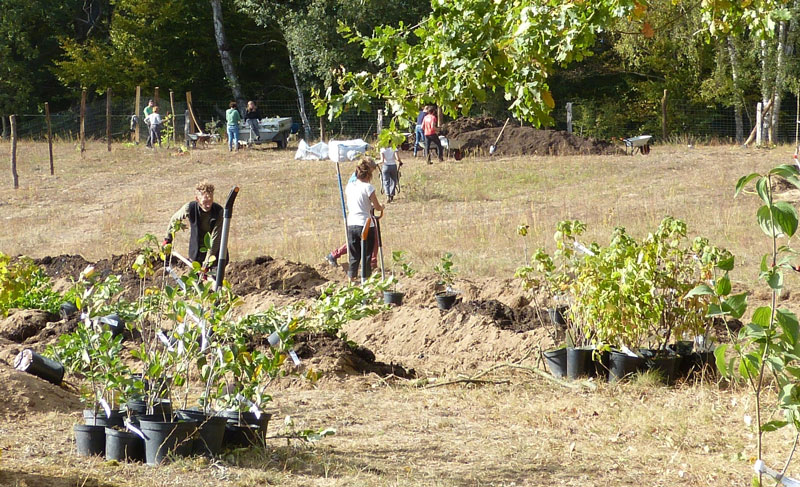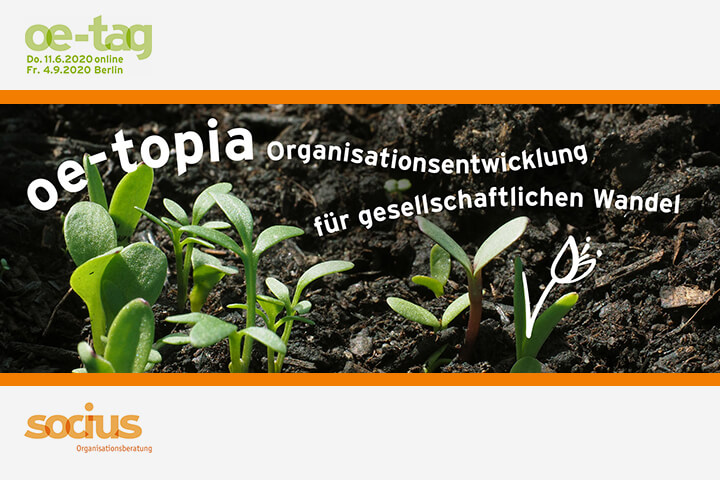Shaping transformation with participatory dialogue formats
Workshop
As the most important representative body for visual artists, with over 3,000 members, the Berufsverband Bildender Künstler Berlin (bbk) is one of the institutions whose influence extends beyond the borders of Berlin.

Participatory orientation and transparency are core values of the association’s statutes. It was therefore a great honor for me to accompany this association as a consultant for organizational development processes during the transformation of the organization in the context of a generational change in management.
One of the particular highlights of the process was certainly the bbk Future Conference in the project room at ExRotaprint, to which all employees of the bbk and its subsidiaries Kulturwerk and Bildungswerk were invited. Here, it became clear once again how much motivation and power large group dialogues can generate for transparent transformation. I would like to thank the chairwomen of the board, Frauke Boggasch and Birgit Cauer, and the bbk’s general manager, Wibke Behrens, for their excellent cooperation, which made this long and profound development process possible.
Future Workshop: School Life after Corona
Workshop
Networking and impulse event for the co-creative design of an inclusive learning and working environment in schools
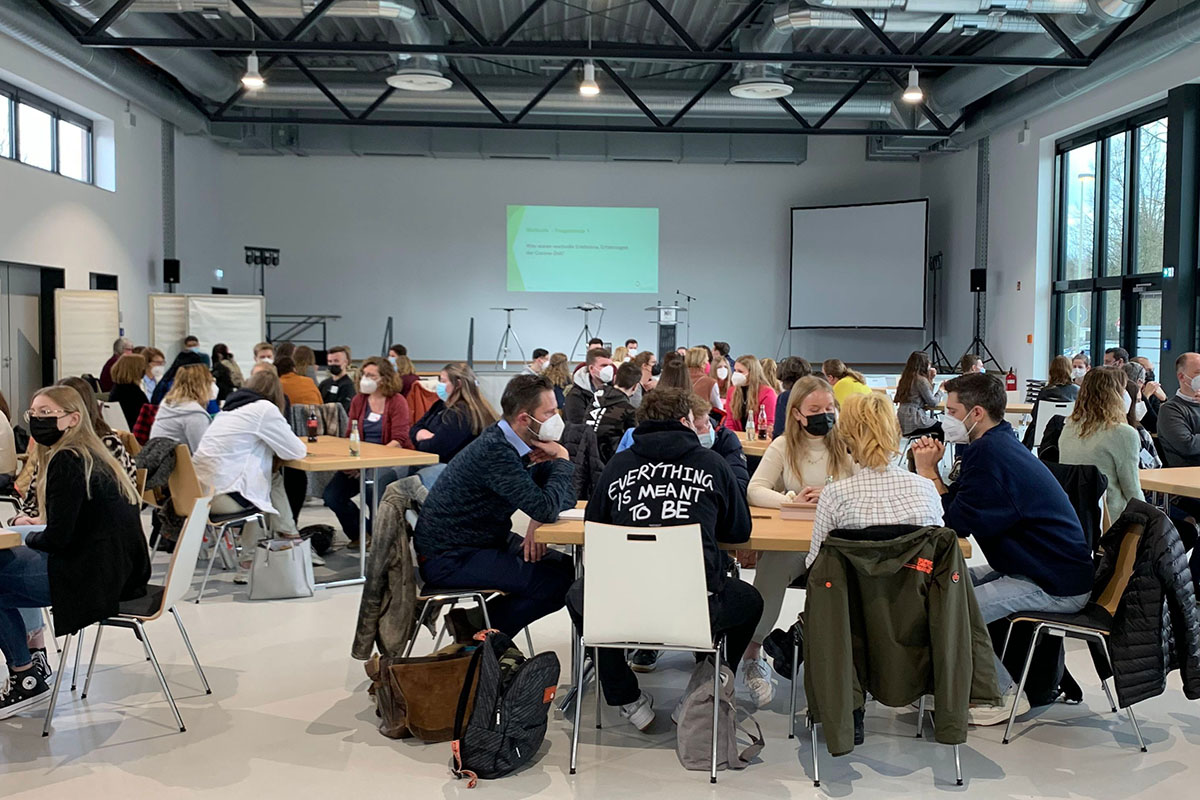
Corona has changed a lot and brought with it very special burdens, especially for school life.
The district of Heinsberg took this as an opportunity to invite pupils, teachers, school administrators, school psychologists and social workers from the district’s schools to a joint dialogue at eye level in Erkelenz on 14 March. In addition to all the impositions that this difficult time has demanded of many, the aim of this event was above all to recognise needs and potentials for shaping schools in the future: Were there also valuable experiences, experiences from the Corona time? What did we learn about ourselves and others? And what possibilities and opportunities can we make fruitful for future school development – with and without Corona – and how? I had the pleasure of co-designing this all-day interactive dialogue event with the group “Back to life” (an initiative of committed school psychologists and school social workers from the Heinsberg district). In the run-up to the planning, we had hoped to be able to hold the event in happier times. However, having already been postponed once, the sad events of the Ukraine war and the continuing high Corona numbers make it clear how urgent and important it is to draw our lessons from times of crisis in order to shape a more liveable, crisis-proof future.
Positive Leadership for Vibrant Organisations
Workshop
Designing processes with PERMA-Lead 360°Feedback

Functioning feedback processes perform like oxygen on the vitality of organisations. Agile organisations in particular need cooperative leadership and sustainable team structures. Yet many teams and leaders shy away from feedback, especially if they think they have to convey or receive “difficult messages”. Deficit-oriented evaluation standards often contribute to the fact that feedback conversations and 360° feedback processes are missed, avoided or even feared in the practice of many institutions and companies. The Positive Leadership approach shows evidence-based ways to increase satisfaction, motivation and thus productivity of teams with the appreciative principles of PERMA Lead.We want to get to the bottom of the beliefs of good leadership:
- Why is leadership via “Facts, Force, Fear” a discontinued model, even though it is still part of the sad practice in many organisations?
- Is it not the task of leadership to clearly address problems and to say what is not going well?
- Doesn’t positive leadership run the risk of fostering an atmosphere of harmony sauce, where nothing critical is allowed to be addressed and every failure is dressed up as a success?
- And how can 360° feedback contribute to making it more difficult for narcissists to rise in organisations?
I would be happy to give a short introduction to working with Positive Leadership and share practical experiences with the PERMA-Lead model: How can the principles of Positive Leadership be made tangible? How can behavioural changes in the sense of Positive Leadership be promoted and measured with the PERMA-Lead Model? What added value can tools such as the PERMA-Lead Profiler and the PERMA-Lead 360° Feedback bring? And where are the limits of this approach?

School without racism - school with courage
Workshop
Workshop "Democracy is more than a method"
Discussion Paper Progressive Center

Especially in times of crisis, it becomes clear how much pressure there is on people in politics and administration to take responsibility for difficult decisions. In such situations, organizations often tend to consult experts. But complex tasks cannot be solved by the expertise of individuals alone. Participatory dialog formats offer a variety of ways to design agile processes that integrate not only expertise but also the experiences and perspectives of those affected. This not only enhances the quality of decisions, but also promotes identification and sustainability in the implementation of decisions. In the discussion paper “Democracy is more than a method – competence development for more democracy in everyday work” for the Progressive Center, I took a closer look at what competence development is needed to be able to shape these processes.
Let me know if you are interested in the English version of the article.
![]()

Team development with double sustainable benefits
Workshop
Strengthen the resilience of your team and our ecosystem in equal measure

In cooperation with zukunftsfähig e.V., I offer you a team action that has an even more lasting effect than mere reflection and talking about ourselves and is therefore doubly meaningful: We plant trees as a team action and let ourselves get inspired by the holistic design principles of permaculture for the development process as a team. Team spirit is created when everyone is united behind a common task. By planting trees together, we create something that will stay and flourish, as a significant contribution to our ecosystem and as a unifying, insightful experience for the common everyday work: corridor enrichment in the literal sense of the word. Action and accompanying dialogue remain in a healthy relationship, because the green thumb replaces the moral index finger. Holistic thinking, planning and acting strengthens the resilience of your team and organization. Strengthen your community and ecosystem!
Strengthening resilience and self-organization with permaculture principles
Strengthening resilience and self-organization with permaculture principles
Workshop
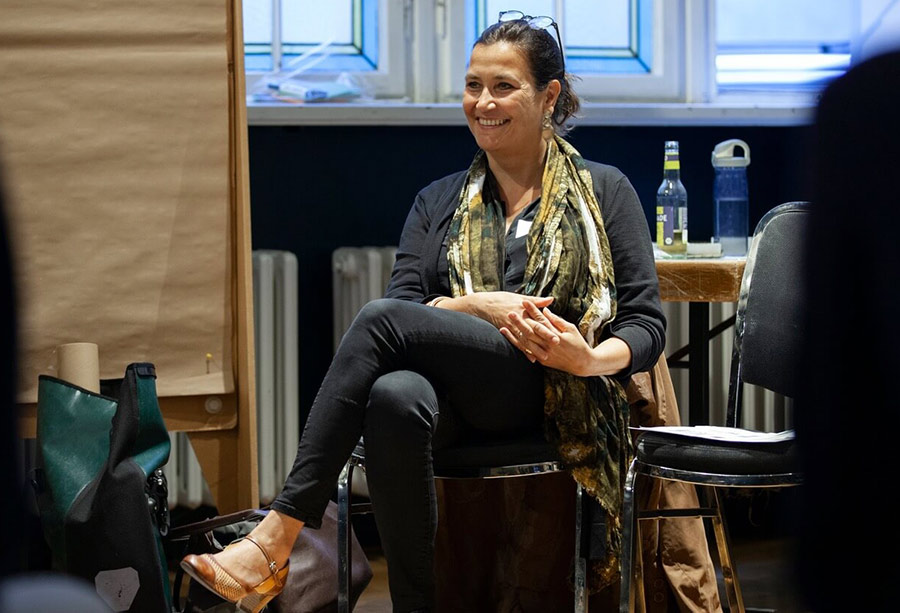
At the invitation of the Consulate General St. Petersburg, I had the honor to speak about my work in the field of human resources and organizational development with a focus on permaculture design as part of a German-Russian evening. The topic of my pandemic digital presentation was how permaculture working principles can be used to strengthen resilience in teams and organizations.
Holistic observation, flexible planning and responsible action are among the fundamental permaculture principles. While this may sound familiar at first, a closer look at systemic permaculture ways of working reveals important distinctive features that have the potential to make a big difference. They offer valuable impulses for our everyday leadership and management – especially in these crisis-ridden times.
I was very pleased that the working methods presented met with such a positive response from this diverse group of 35 participants. Thank you once again to Consul General Dr. Eltje Aderhold for the invitation to the lecture.
More rhythm in everyday life instead of deadline stress
Workshop
Rituale? Rituale!
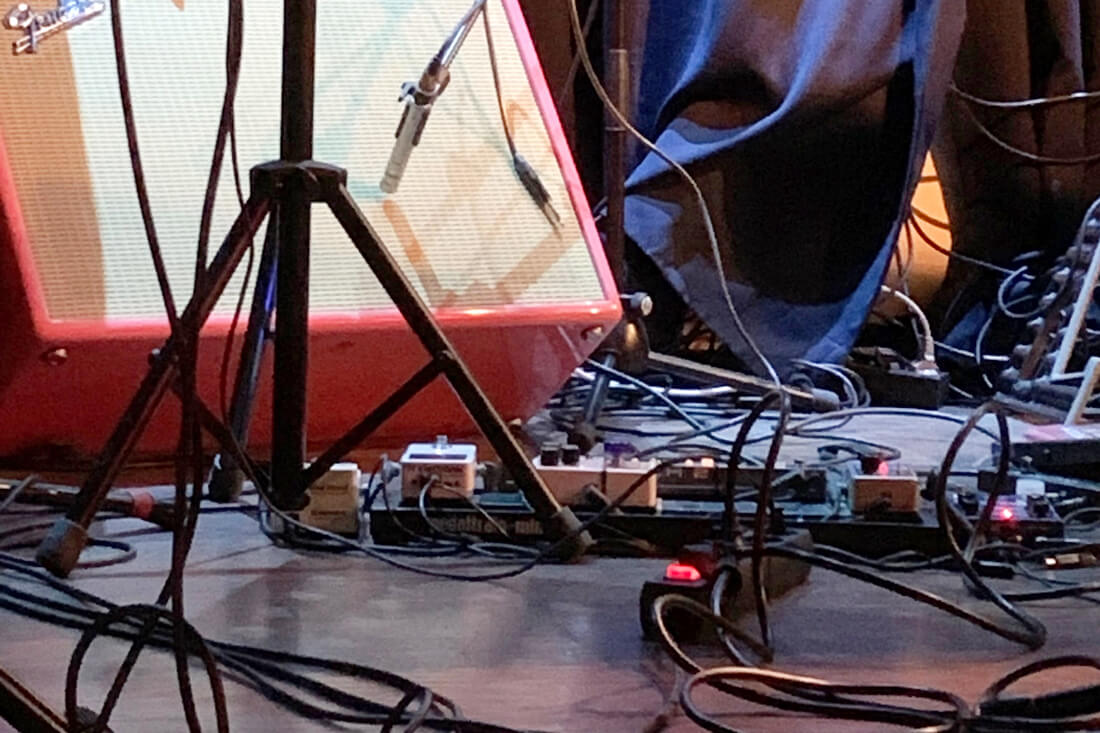
Rituals? For some, this sounds like a boring ceremonial speech or a tiresome obligatory event: a birthday drink, a Christmas event or an anniversary celebration. But what distinguishes a meaningful ritual from a meaningless, ritualistic routine? How can it contribute to the dramaturgical design of your daily work routine? What potential does a dramaturgical design of your daily work routine offer? Rhythmization and rituals help to bring your processes into flow and to promote potentials in your organization. Counteract the stress of deadlines with rhythm! Personal and organizational routines can be large or small, formal, ceremonial or informal. As a coach and keynote speaker, I see many opportunities to promote the development of potential in your organization with coherent rituals and a rhythmization of your process flows. Rhythm replaces power. Use these possibilities to make implicit knowledge more fruitful in your organization.
Leaving the paths of entrenched thought structures
Workshop
Unconcious Bias workshops for managers and teams

Blind spots in perception are our constant companions – also in working life. Unconcious bias, unconscious presumptions, obscure the unbiased view of the new and the familiar. They stand in the way of an open and innovative work culture. Although this insight has theoretically long been accepted by management, in practice it often receives (too) little attention in everyday management. The reflection of our perception patterns is not only a question of justice in our life and work world. It belongs as a core element in every innovation development as an antidote to the tunnel vision of our own expertise. This applies to team or product development as well as to communication management. There are many good reasons to give time and attention to the new work trend “Unconcious Bias”.
